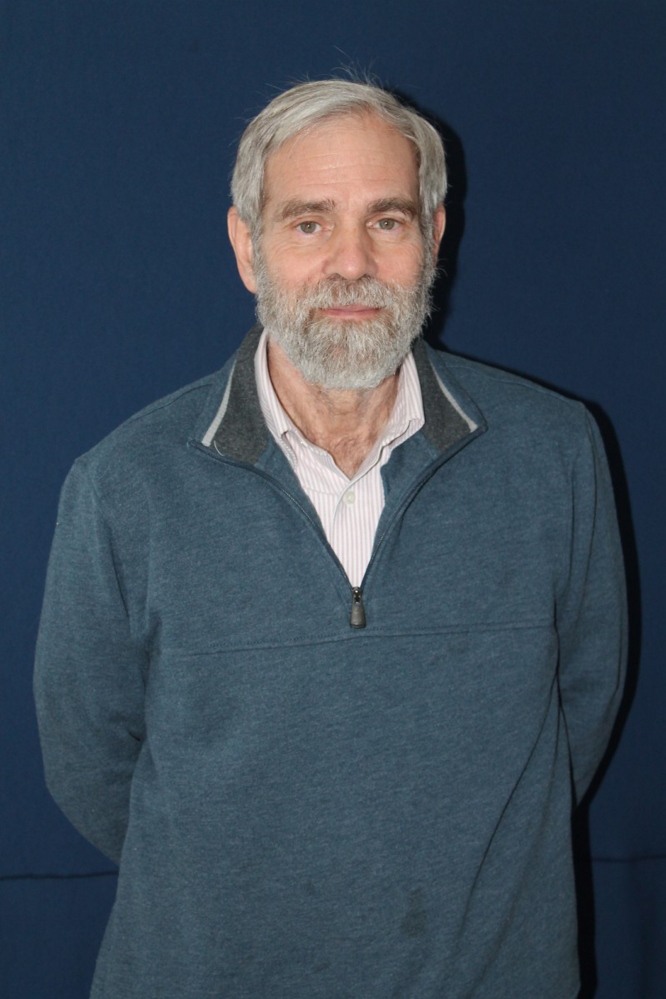AUGUSTA —Two people deeply involved in dealing with substance abuse in Kennebec County have high praise for Gov. Paul LePage’s convening of a summit to address the escalating heroin crisis, but another was disappointed that more law enforcement officers than treatment providers were invited.
“We should acknowledge and appreciate and recognize (LePage’s) effort in pulling together this group of people in addressing this issue,” said Neill Miner, project director for the Southern Kennebec Alliance for Substance Abuse Prevention, a community coalition operating under the umbrella of Healthy Communities of the Capital Area. “I would say it’s a great beginning.”
However, Kenny Miller, executive director of the Down East AIDS Network and Health Equity Alliance and coordinator for the Maine Harm Prevention Alliance, called the absence of more people from the treatment and harm reduction fields at the governor’s summit a “wasted opportunity” but unsurprising. The Down East AIDS Network runs free HIV/hepatitis C testing centers in Augusta and Waterville and other programs in eastern and central Maine, and it has headquarters in Bangor and Ellsworth.
“I think for me, it’s no real surprise,” Miller said Wednesday. “I wasn’t expecting anything different from this administration.”
When LePage called for the summit after 14 heroin overdoses in Portland in a 24-hour period, Miller said there was some indication the governor was willing to expand the dialogue. But LePage quickly shifted back to his administration’s familiar emphasis on law enforcement, Miller said, with Tuesday’s announcement of the 22 people who will join the governor at the summit. Law enforcement will outnumber treatment experts by a more than 3-to-1 ratio.
“We were hoping for more, but it doesn’t come as any surprise that it has been scaled back to law enforcement and public safety,” Miller said. That focus frequently comes across as cracking down on people with addiction issues, Miller added.
Kennebec County Sheriff Randall Liberty commended LePage for convening the summit.
“I believe that the solution to this issue is early education; strict, aggressive enforcement; and treatment,” Liberty said.
Miner said heroin abuse is the most recent crisis and that he understood that the numbers of arrests and overdoses have continued to rise.
“In any moment in time, you’re going to have one drug or another drug that’s the emergent issue,” Miner said, listing alcohol, marijuana, prescription drugs and heroin as among them. “Right now there’s no question heroin is the emerging and most concerning issue. What’s very positive here is that we’re building on a pretty solid community response to substance abuse issues. I’m seeing more of a broad-based response to this than when I started doing community work in 2007. We have better system now to address this significant problem than we had a while back.”
Miner said he next hopes to see a list of specific goals for the LePage summit.
One of the best examples of this cross-system conversation and strategic planning is the Augusta Police Department asking how it can work with the recovery community, Miner said.
The latest figures from Augusta police indicate that in the last year, officers made 25 arrests related to heroin and responded to 70 drug overdoses, 19 of which were from the use of heroin. Five of those heroin overdoses were reported since May 1, according to Deputy Chief Jared Mills.
Liberty describes his department as a “one-stop shop” for enforcement, education, and treatment programs for combating the heroin crisis that trigged the governor’s call for a summit.
Liberty said Kennebec’s is the only county jail in the state offering comprehensive education, treatment and rehabilitation to inmates, and it has had inmates from every county in the state participating in the Criminogenic Addiction Recovery Academy, more commonly known as CARA. It functions as an inpatient treatment program followed by a six-month follow-up known as the Kennebec Regional Re-entry Program, which manages the inmates’ transition back to the community and assists with resources to help them be successful. Partners include Crisis & Counseling, Maine Pretrial Services, the Augusta Adult Education program and the city of Augusta.
Liberty said inmates addicted to opiates return to jail at a rate of about 65 percent, but that rate is reduced to 14 percent for those who graduate from the CARA program.
While that program was endangered by lack of funding, he said efforts by Sen. Roger Katz, R-Augusta, and Rep. Gay Grant, D-Gardiner, secured about $140,000, which is enough to fund it for another year. “With adequate funding, I can put through about 120 program participants a year,” Liberty said.
Liberty also said central Maine is understaffed with regard to enforcing Maine’s drug trafficking laws. He said his office has three deputies assigned to working drug enforcement full time. “And I could use 10,” he added.
While the statistics for the central Maine area are not yet available for 2014 or this year, a report of 14 heroin overdoses in Portland during one 24-hour period last month resulted in LePage’s summit.
“Anecdotally, I’ve seen a 30 percent spike in the addiction in last three (years), as it has trended from prescription painkillers to heroin,” Liberty said.
Miller said harm reduction means focusing on limiting the worst effects of drug abuse through programs such as needle exchanges, HIV and hepatitis C screenings and overdose prevention. It is a “pragmatic” approach that recognizes not everybody is ready for treatment, Miller said.
Because of its approach, harm reduction tends to be more controversial and isn’t given the same weight as law enforcement, prevention and treatment.
“The perception is that you are encouraging drug use, but all the evidence we’ve seen and the wealth of public health research shows the exact opposite,” Miller said.
“It feels like more attention needs to be paid to the fact that enforcement, treatment and prevention isn’t enough,” he added.
Betty Adams — 621-5631
Twitter: @betadams
Send questions/comments to the editors.



